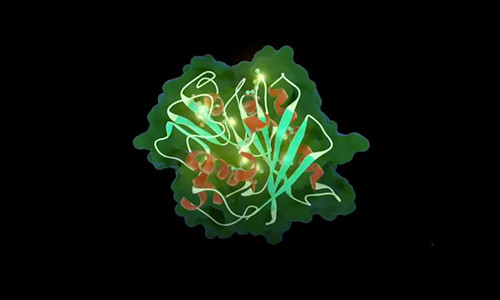Successfully developed enzyme capable of decomposing plastic
The plastic-degrading enzyme was produced by mutating the PETase enzyme in the plastic-eating bacterium Ideonella sakaiensis.
|
Mutant enzyme can decompose plastic in days. Photo:CGTN. |
Scientists from the UK's University of Portsmouth and the US National Renewable Energy Laboratory accidentally created an enzyme capable of decomposing plastic by mutation, opening up a new solution to the world's plastic waste pollution problem.AFPyesterday news
The team focused on a PET (polyethylene terephthalate)-eating bacterium called Ideonella sakaiensis, first discovered by Japanese scientists in 2016. The team's initial goal was to understand the structure of the bacterium's PETase enzyme. However, they went further than expected when they accidentally created a mutant enzyme that can degrade plastic even better than PETase.
Scientists used powerful X-rays, 10 billion times brighter than the Sun, to create an extremely high-resolution 3D model of the PETase enzyme's structure. The model shows that it is very similar in structure to the cutinase enzyme found in fungi and bacteria. The difference appears only in a small region inside the PETase enzyme. Scientists believe that this is what allows the enzyme toThisplastic decomposition
The team tried to modify the active site of the PETase enzyme to make it more similar to cutinase. The results were surprising: the mutant enzyme produced was able to degrade PET plastic better than the PETase enzyme in the bacterium Ideonella sakaiensis.
The findings have huge implications. It is estimated that more than 8 million tonnes of plastic waste is dumped into the ocean every year, most of which takes hundreds of years to break down in the natural environment. "The enzyme produced is amazing. Conventional plastics can take up to 400 years to decompose, but now we can break them down in just a few days," said Professor John McGreehan from the University of Portsmouth.
The study was published in the journalProceedings of the National Academy of SciencesScientists say more research is needed to improve the enzyme, with the hope that it can soon be used on a large scale to treat plastic waste around the world.

